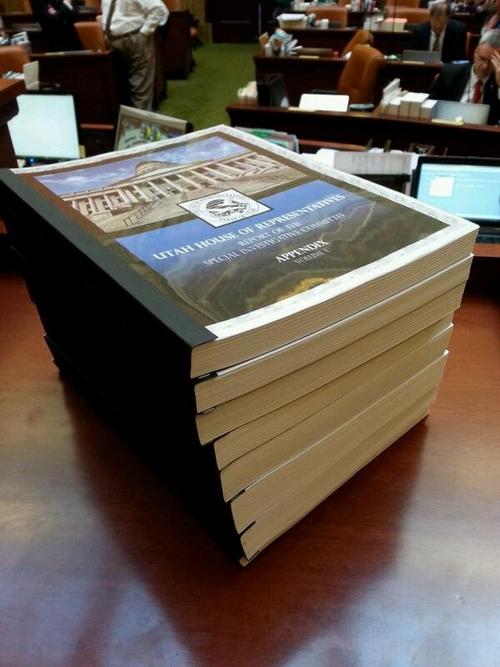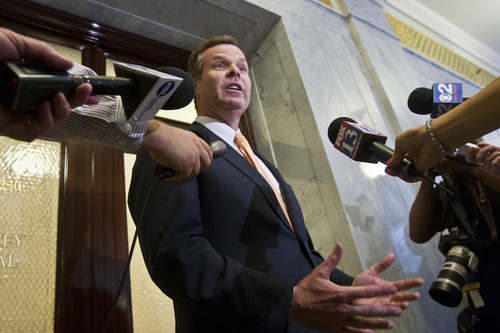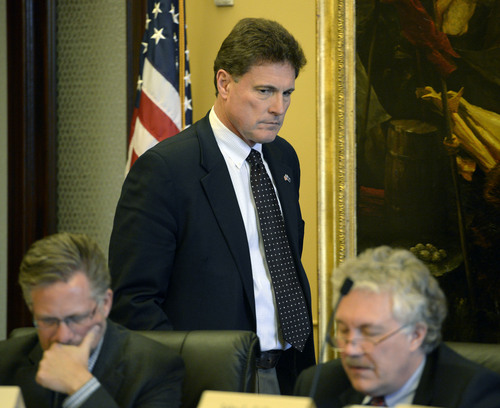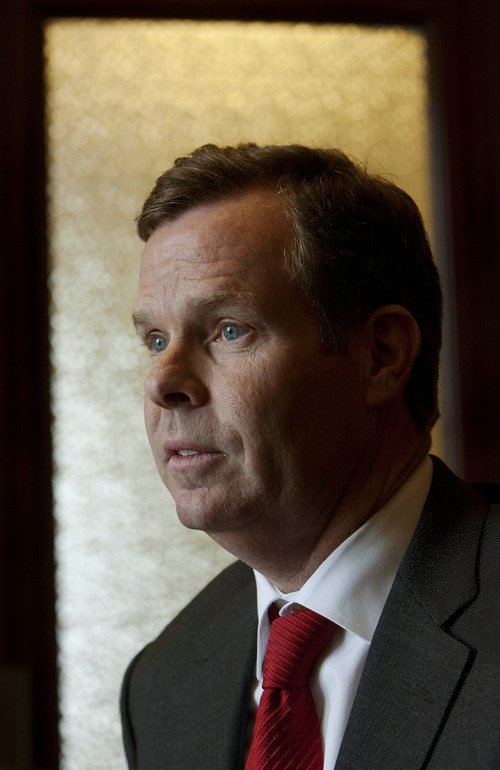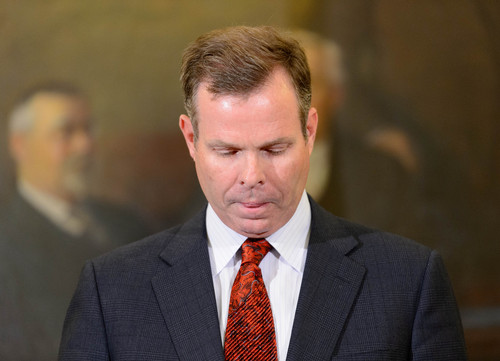This is an archived article that was published on sltrib.com in 2014, and information in the article may be outdated. It is provided only for personal research purposes and may not be reprinted.
The Utah House on Wednesday released the final report of its investigation into former Attorney General John Swallow, laid out in more than 200 pages with 3,700 exhibits, the result of a four-month, $4 million investigation, which contributed to Swallow's resignation.
The report is available online here. Tribune reporters are reading the report and will provide updates soon.
"[From] where we started last July to where we are today, this absolutely was necessary, it was needed, it was worthwhile," said Rep. Jim Dunnigan, R-Taylorsville. "If we had not done this, this type of regime or program would have continued on to the detriment of Utah."
Gov. Gary Herbert said Tuesday that the investigation cost more than anyone expected but was well worth the money.
"I don't know that we can overemphasize the importance of solving the problems we had in the attorney general's office, and it's an unfortunate circumstance, a disappointment for many people that we had the problem in the first place," said Herbert, who has not seen the House report.
Much of what is contained in the report will be familiar, material that was reported by the House investigators during two days of committee meetings in December.
Investigators have since found additional documents, including more than 1,700 emails recovered from Swallow's crashed home computer, that Dunnigan said reinforce and corroborate the earlier findings.
Dunnigan said he hopes the investigation and report restores the public confidence in the office.
"The attorney general's office is the highest law-enforcement office in the state and people have to feel like everyone is treated fairly and equally and that no nods or special favors are given," Dunnigan said. "We know you can't stop everybody, and we can't, but we do want to set a good paradigm and path forward that we want better in Utah."
The committee voted unanimously Tuesday to approve the final draft of the report, which will be presented to House Speaker Becky Lockhart Wednesday at 11 a.m. The report will be posted online for the public soon after, with links to the thousands of pages of exhibits referenced in the material.
Legislative counsel John Fellows said the report is divided into four parts — the first laying out efforts by the former attorney general to enrich himself while in office, through his relationships with the payday lending industry, Bank of America and St. George businessman Jeremy Johnson.
The second part delves into Swallow's alleged fabrication and deletion of evidence; part three details investigative avenues that were not "fruitful" or followed to their conclusion; and the final part will detail recommended changes to state law stemming from the probe.
House Majority Leader Brad Dee, R-Ogden, who served on the committee, said he believes people who take the time to read the report will see it "was well worth the time and the cost."
"It's tough to put a price tag on the people's right to know what goes on in their government," said Dee.
Legislative leaders approved the $4 million to pay for the cost of the investigation this week.
Lockhart said the effort was "absolutely" worth the time and money and pointed to three bills already well through the legislative process that were born out of the Swallow investigation.
One would significantly expand the campaign financial and conflict of interest reporting required by candidates; another would make it a crime to obstruct a legislative investigation; the third clarifies the Legislature's authority to issue subpoenas as part of an investigation and the consequences for refusing to comply with the demands.
The investigative committee was created in July, after months of reports of alleged wrongdoing by Swallow and his predecessor, Mark Shurtleff.
The report, while not an impeachment inquiry, could have laid the groundwork for the launch of such action.
In November, Swallow announced his resignation, citing in part the mounting legal costs that had taken a toll on his family.
Dunnigan said Tuesday that Swallow's attorney had "intimated" to the committee that, while an investigation by the lieutenant governor's office was a concern, it was the "doggedness" and cost of the House investigation that led Swallow to step down.


